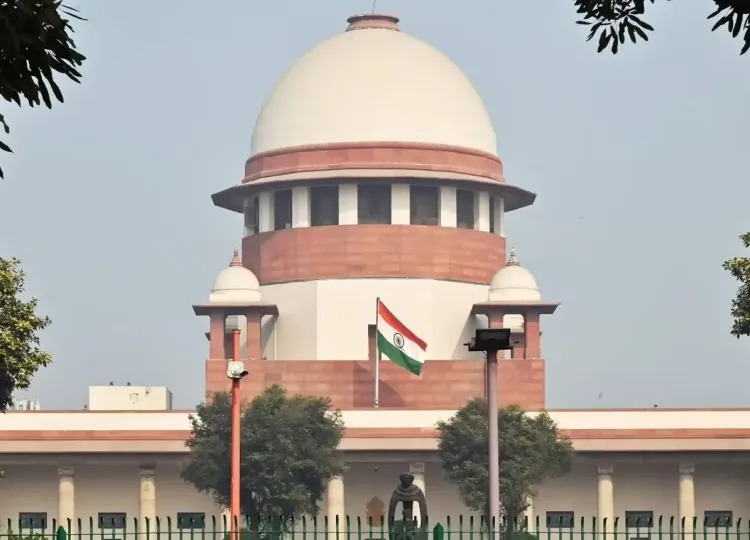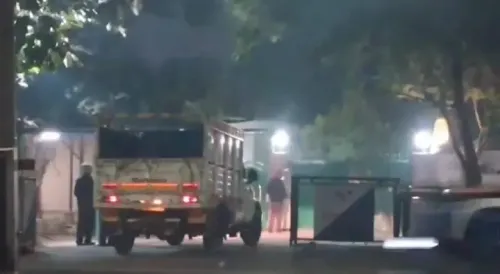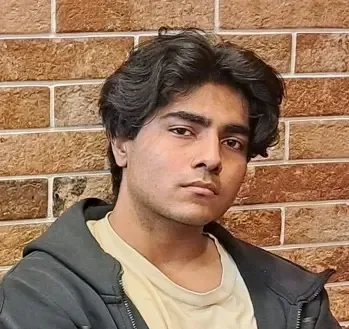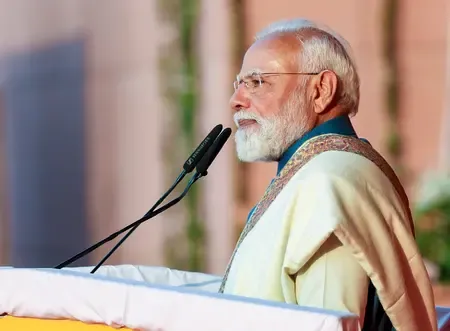Will the Supreme Court Hear Bail Pleas of Sharjeel Imam, Umar Khalid, and Others in the 2020 Delhi Riots Case Today?

Synopsis
Key Takeaways
- The Supreme Court will deliberate on bail pleas from key activists in the 2020 Delhi riots case.
- The outcome may influence future interpretations of UAPA cases.
- The case has raised significant concerns regarding civil rights and government accountability.
- Public interest in the case reflects broader societal issues related to protest and dissent.
- Both legal and social implications are of national importance.
New Delhi, Sep 12 (NationPress) – The Supreme Court is set to review the bail applications of four individuals, namely Sharjeel Imam, Umar Khalid, Meeran Haider, and Gulfisha Fatima, in relation to the conspiracy case concerning the 2020 Delhi riots this Friday.
The accused are facing charges under the stringent Unlawful Activities (Prevention) Act (UAPA) and have contested the decision made by the Delhi High Court which denied them bail, linked to the alleged extensive conspiracy behind the violent events in North-East Delhi.
A bench consisting of Justice Aravind Kumar and Justice N V Anjaria will consider the petitions submitted by Sharjeel Imam, Umar Khalid, and Gulfisha Fatima. Concurrently, a different bench led by Chief Justice D Y Chandrachud and Justice K Vinod Chandran will address the bail plea of Meeran Haider.
The 2020 Delhi riots, which were ignited by widespread protests against the Citizenship Amendment Act (CAA), led to the loss of over 50 lives and left hundreds injured. The Delhi Police alleged the unrest was part of a calculated conspiracy, purportedly orchestrated during the anti-CAA protests, invoking UAPA provisions against various activists and student leaders.
Sharjeel Imam, a former student of Jawaharlal Nehru University (JNU), was apprehended on January 28, 2020, in Jehanabad, Bihar, for allegedly delivering inflammatory speeches at Jamia Millia Islamia and Aligarh Muslim University. He has remained in custody since then and was subsequently charged under UAPA due to his alleged involvement in the riots.
Umar Khalid, another former JNU student, approached the apex court on September 10 after the Delhi High Court dismissed his bail application in the UAPA case. Gulfisha Fatima and Meeran Haider, both linked to student activism, face similar UAPA charges, which have been vehemently opposed by civil rights advocates and legal experts.
This case has garnered substantial national attention due to the serious nature of the charges and the prolonged detention of the accused.
The Supreme Court's ruling on these bail applications is anticipated to significantly influence the interpretation and management of UAPA cases associated with protest movements.










